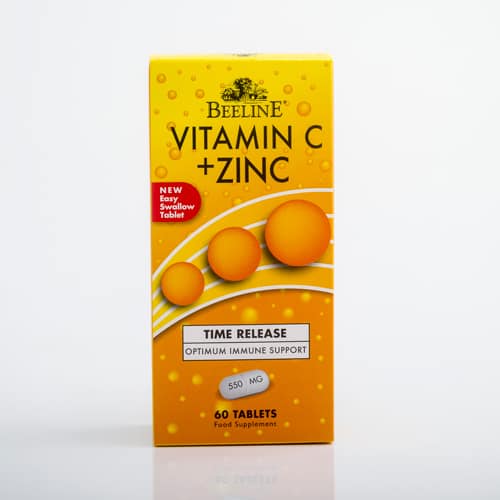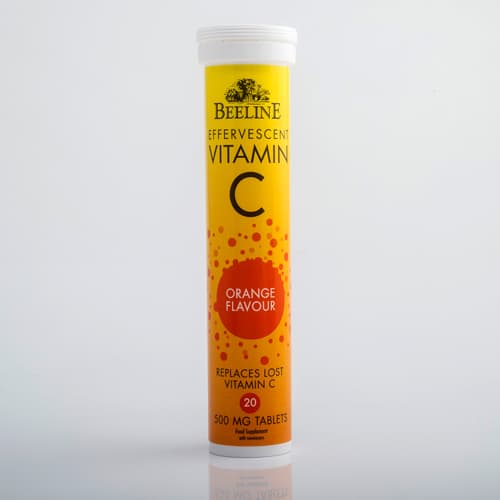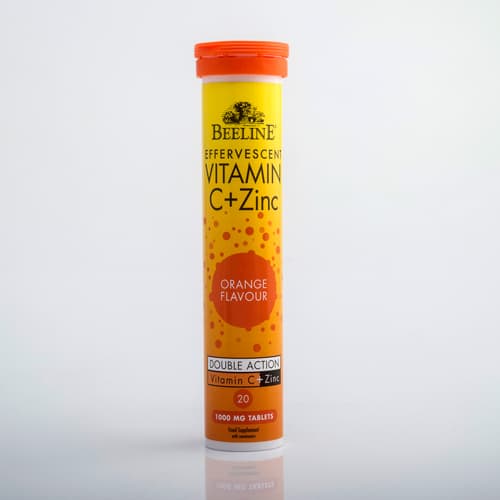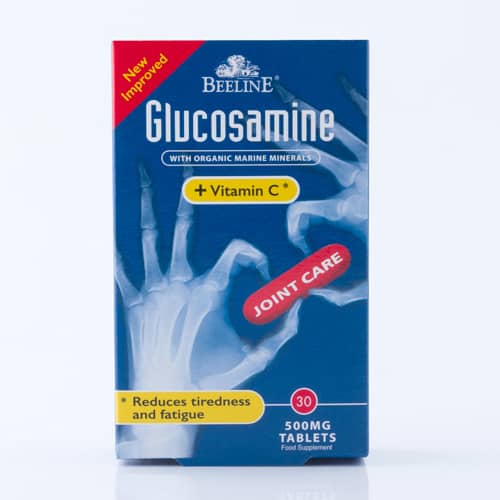Vitamin C Benefits, Sources, Supplements & Dosage
Vitamin C is essential for good health. The benefits of vitamin C are that it supports a healthy immune system and helps fight infection.
Vitamin C is L-ascorbic acid, which is an essential nutrient for good health. It is a key antioxidant that helps the body fight infection and form collagen. The benefits of vitamin C supplements include healthy bones, teeth, muscles and a properly functioning immune system. It can reduce stress, improve mood and may help prevent illness. Signs of deficiency include bone pain, muscle weakness, fatigue and a depressed mood. The key sources of the vitamin include food and supplements. Adults need at least 80mg of vitamin C per day. The body does not produce or sufficiently store vitamin C, so a daily supplement is recommended.
What is Vitamin C Good for?
Pure Vitamin C is L-ascorbic acid, which is one of the 13 essential vitamins. It is a vital nutrient for good health that is an ascorbic acid. This means that it is a natural water-soluble vitamin. Ascorbic acids improve the absorption of key nutrients such as iron.
Vitamin C is a key antioxidant in the body, which combines with other antioxidants including Vitamin E. Antioxidants are nutrients that combat free radical molecules and microbial invaders to prevent them causing damage. Antioxidants are important for fighting bacterial infections, for detoxification of the body as well as for the formation of collagen in skin, teeth, gums, bones, tissue, tendons, blood vessels and capillaries. Vitamin C is required for the development, growth and repair of tissues in our bodies. It plays a key role in building a good metabolism and providing immunity.
Our bodies do not produce vitamin C. Also, it cannot be stored for any length of time in the body. Therefore, it is important to consume vitamin C in your diet.
The Benefits of Vitamin C
The benefits of vitamin C include healthy bones, teeth, muscles, reduced tiredness and a properly functioning immune system to fight infection and illness.
1. Supports a Healthy Immune System to Boost Immunity and Fight Infections
Vitamin C improves our immune defence system to boosts our natural immune resistance to build a good metabolism and boost immunity. It can defeat bacteria directly, while also helping to neutralise bacterial toxins. During an illness, vital components of our immune system lose Vitamin C. Keeping up our levels of vitamin C is vital in defending against infections. This can also contribute to the healing of wounds.
2. Helps Reduce the Risk of Chronic Disease
Vitamin C is a key antioxidant in the body. It combats free radical molecules and microbial invaders to prevent oxidative damage. Oxidative stress is an imbalance of free radicals and antioxidants in the body, which leads to damaged cells and has been linked to many chronic diseases such as cancer.
3. Combats Allergies
Adequate levels of vitamin C in the body can help combat allergies and reduce the severity of allergic reactions. This is due to it being an antioxidant. When we encounter an allergen, our bodies produce histamines to let us know that we are allergic to something in the environment or that we consumed. Vitamin C fights infections to protect the body’s cells from damage, and help the body combat allergens by decreasing our body’s histamine production.
4. Reduces Stress and Anxiety Levels
Our adrenal glands produce the hormones that deal with stress. These contain more vitamin C than any other part of the body. Ascorbate calcium is a form of vitamin C that plays a key role in the manufacture of the hormones, which are necessary to deal with stress.
5. Healthy Blood Vessels Help High Blood Pressure
According to scientists from Johns Hopkins University School of Medicine, vitamin C may help manage high blood pressure. It can act as a diuretic, removing excess fluid from your body to help lower pressure within a person’s blood vessels. It also assists collagen formation, which is good for blood vessels.
6. Healthy Skin, Teeth, Bones and Cartilage
Vitamin C is required for the synthesis of collagen. Collagen is a protein that provides structure to the body to help maintain healthy skin, teeth, gums, bones and cartilage. Vitamin C also combats the free radicals that cause oxidative stress to skin, which leads to premature skin ageing.
7. Reduces Tiredness and Fatigue
Vitamin C helps boost your immune system. This leads to a reduction of tiredness and fatigue, which makes up feel more alert and healthier.
8. Helps Prevent Iron Deficiency
Iron deficiency occurs when the body does not absorb enough iron. It can result in tiredness and shortness of breath. Vitamin C increases the absorption of iron. Once absorbed, iron is a mineral that helps the body with growth and development by moving oxygen around the body for using your muscles.
9. Assists a Depressed Mood
A depressed mood can be a symptom of deficiency. Vitamin C plays an important role in the synthesis of the norepinephrine, which is a neurotransmitter that is critical to brain function and is important for emotions affecting mood. According to Mayo Clinic studies of patients in hospital with lower levels of vitamin C, their mood improved after they received vitamin C.
10. Flu and the Common Cold
When taken daily on a regular basis, vitamin C supplements can shorten the duration of cold and flu symptoms.
11. Possible Role in Lowering Risk of Heart Disease
There are a number of studies, which indicate that vitamin C may possibly help reduce the risk of heart disease. This is achieved by lowering heart disease risk factors including reducing blood cholesterol and triglyceride levels.
Vitamin C Deficiency
Vitamin C deficiency can lead to a disease known as scurvy. It is characterised by bleeding gums. The signs and symptoms of deficiency include:
- Bleeding gums
- Tiredness
- Bone pain
- Weak aching muscles
- A depressed mood
- Reduced immunity leading to infections.
Sources of Vitamin C
Our bodies do not produce vitamin C and it cannot store it for any length of time. Therefore, it is important to consume vitamin C in your diet. The sources of vitamin C are food and supplements.
1. Food
Vitamin C is found in a range of fruit and vegetables. Good food sources include:
• Oranges
• Strawberries
• Tomatoes
• Kakadu plums
• Chili peppers
• Green and red bell peppers
• Broccoli
• Brussel sprouts
• Sweet potatoes
• Potatoes
• Spinach
• Kiwi fruit
• Blackcurrants
• Acerola Cherries
• Thyme
• Parsley
• Kale
• Rose hips
• Guavas
• Papaya
• Peas.
2. Vitamin C Supplements
Dietary supplements are the second source of vitamin C. Beeline Healthcare offers a full range of vitamin C supplements for adults, babies, toddlers and teenagers. The supplements can be purchased at online store directly from us or at your local supermarket or pharmacy.
How Much Vitamin C Do I Need?
Taking too little of the vitamin can result in deficiency and its associated issues including tiredness, bone pain, muscle weakness and low mood. Taking too much is unlikely to be harmful but may cause stomach pain, diarrhea and flatulence.
According to the Health Service Executive, adults need at least 80mg of vitamin C per day. Vitamin C cannot be stored for a reasonable length of time in the body, so people need it in their diet every day. It is recommended to take a supplement every day with a vitamin C dosage of up to 1,000mg.
Beeline Vitamin C Supplements
Beeline offer a range of Vitamin C supplements. The range covers tablets, chewable tablets and effervescent tablets.
These products include:
Vitamin C Infographic
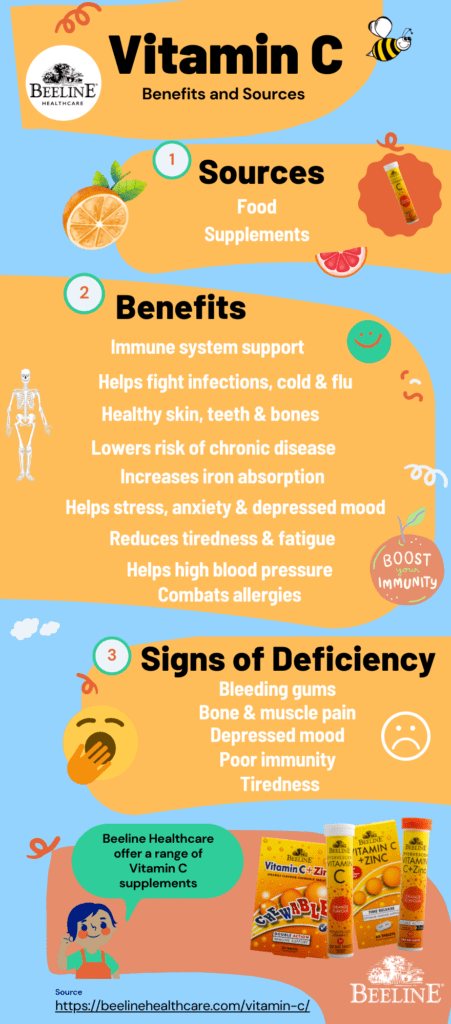
Share this Image On Your Site
Vitamin C Questions
- What is Vitamin C good for?Vitamin C is good for general good health. It supports a healthy immune system to help fight infection and illness, reduces fatigue and supports healthy bones, teeth and muscles.
- How do we get vitamin C?The sources we get vitamin C from are food and supplements. Our bodies do not produce vitamin C and it cannot store it for any length of time. Therefore, it must be consumed by diet.
- What are the benefits of taking vitamin C?The benefits of vitamin C include healthy bones, teeth, muscles, reduced tiredness and a properly functioning immune system to fight infection and illness. Having sufficient vitamin C helps with:
- Supports a healthy immune system to boost immunity and fight infections
- Helps reduce the risk of chronic disease
- Combats allergies
- Reduces stress and anxiety levels
- Healthy blood vessels help high blood pressure
- Healthy skin, teeth, bones and cartilage
- Reduces tiredness and fatigue
- Helps prevent iron deficiency
- Assists a depressed mood
- Combats flu and the common cold
- Possible role in lowering the risk of heart disease.
- What food is highest in vitamin C?The food that vitamin C is highest in is a range of fruit and vegetables. Food sources include oranges, strawberries, tomatoes, Kakadu plums, chili peppers, green and red bell peppers, broccoli, Brussel sprouts, sweet potatoes, potatoes, spinach, kiwi fruit, blackcurrants, acerola cherries, thyme, parsley, kale, rose hips, guavas, papaya and peas.


